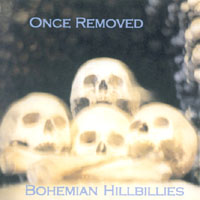Our survey says...
(Looking for the AIRSPACE article, "Do You Belong in the Blogosphere?" Just scroll down to the July 10 post. Thanks!)
You've been very kind to put up with my opinions. Now I'd like to hear yours. Introducing the Question of the Day, courtesy of Zoomerang.com, an easy-to-use online service that allows you to conduct simple surveys free, and more complex ones for a fee. Zoomerang provides the service, but doesn't come up with the questions (or answers).
Today's question: In your opinion, which is worse: a president who gives misleading answers about a private sexual encounter between two consenting adults that did not lead to physical injury or death for Americans or anyone else, or a president who makes false and misleading statements about weapons of mass destruction to convince the nation to go to war, leading to physical injury and death for civilians as well as American soldiers?
1) Misleading answers about private sexual encounters between consenting adults
2) Misleading and false statements about weapons of mass destruction leading to the deaths of civilians and American soldiers
3) Bloggers who ask impertinent questions like this
4) Other (Please specify)
Just click on the link there in the left-hand column to participate.
posted by Janet Dagley Dagley @1:16 PM
|
12.7.03  |
$389!!!! Open your mouth and say, 'Aarrrrgggghh!!!!!' (Health insurance: a sick situation, Part II)
(Welcome again, AIRSPACE readers. Please scroll down past the photo to read the article, "Do You Belong in the Blogosphere?" And feel free to check out the rest of the blog while you're here.)
On July 1, readers of this blog were subjected to a textual earful on the topic of this nation's very sick health-insurance industry. Today, a quick update: as I predicted, the bill for the routine tests ordered by my doctor has been rejected, even though I am fully insured. It really doesn't matter why or how it happened; it does matter that something like this happens every single time I or anyone I know (under the age of 65) has the audacity to access the health-care system. No matter what the official reason for the rejection, it will be the same amount of work for me to appeal it and, I hope, get the bill sent to the right place with the right numbers attached to get our insurance company to pay, since that's what we've already paid them for. If I were to go out and take on extra work to get the money to pay the bill in question, I could probably earn it with less time and energy than it's going to take to get this resolved. And that's sick.
Who benefits from a system that works -- or doesn't work -- like this? Maybe some of the insured people who get these bills and threatening notices find them so intimidating that they just go ahead and pay them, thus sparing the insurance company the expense of fulfilling its side of the bargain. Maybe some of them have full-time jobs and young children and they just don't have the time to go through the appeal, so they just pay the bill to get it over with. Maybe what the insurance company gains from holding onto the money just a few days or weeks or months longer is worth the expense of employing all those people who spend their days getting yelled at by irate patients, doctors, or both. Or maybe, the stress from all that yelling, or listening to yelling, causes enough health problems for patients, doctors, and insurance company employees alike to keep the whole industry growing strong. I know my blood pressure went up when I opened the latest rejected bill.
While looking for answers online, I ran across a headline that surprised me: Health insurance industry profits plunge into the red. Then I realized it was about Australia. Here in the U.S., health-insurance premiums, and profits, just keep going up, as does the cost of health care.
It's getting worse: employers are shifting more and more of this growing burden onto workers. Meanwhile, the number of uninsured Americans is up to 41 million.
posted by Janet Dagley Dagley @6:05 PM
|
11.7.03  |
Do you belong in the blogosphere?
(Welcome, readers of AIRSPACE, the quarterly journal for public radio producers. Today's post is actually part of the AIRSPACE Summer 2003 online E-dition, which includes many other interesting articles as well. Regular readers of The Dagley Dagley Daily may recall its original publication here on June 6.)

The real Mikhail Gorbachev was busy when I visited Moscow in 1990, but a cardboard stand-in greeted many lesser well-wishers such as myself.
By Janet Dagley Dagley
I’d like to begin this piece with a sound snippet: unfortunately I didn’t record it, so please indulge me in this reconstruction:
September, 1990, Moscow, USSR: “If you want to talk to Russians, go to Pushkin Square. You'll find a bunch of men on the street corner, all shouting at each other, talking politics, all day, all night. Get in there among them and start talking in English, loud. Anyone who can speak English will want to talk to you. They don't get to meet many English speakers," explained Eric, coordinator for our group, just arrived for a 6-week intensive Russian language course. Mikhail Gorbachev was still president then of what was still the Soviet Union, though glasnost and perestroika were well under way and communism had already fallen in Eastern Europe, all of which gave the shouting men ample conversation fodder.
And so we did just that, eight of us, in pairs spread out through the crowd, shouting at each other in English. Nobody seemed to notice, but we kept on, talking and talking about everything we could think of to talk about, still without drawing the slightest interest from any of the locals. Eventually my shouting partner and I got around to asking each other mundane questions such as, "So, what kind of movies do you like?", which at least revealed a mutual interest in the films of the Coen Brothers, and that led, in turn, to shouting our way through some of our favorite scenes from Raising Arizona, ("You want I should freeze or get down on the ground? Cause if'n I freeze, I can't rightly drop, and if'n I drop, I'm a-gonna be in motion"), but even that failed to draw the attention of a single one of those shouting Muscovites. We were disappointed, but understood that the locals had plenty to talk about amongst themselves: they kept on gathering and shouting until the racket they made changed their country and our world.
That's kind of what the blogosphere sounds like: a crowd of people all shouting at once, some at each other, few of them listening. Some of what they say is meaningful, some not, some original, some derivative, some of it other people's words, much of it pointed commentary, more of it pointless. The vast majority of voices here are shouting (whispering, muttering, confiding, babbling, droning) in English, with a noticeable minority blogging in Farsi (some of them getting hauled off by Iranian authorities as a result). Some of the English comes from non-native speakers, who blog in a foreign tongue so as to reach a wider audience, as Baghdad blogger Salam Pax did so notably during the invasion of Iraq. Some of the voices are saying something interesting, and saying it eloquently, while others seem to be going on and on about nothing.
Let's move on to another place, and another sound clip, which also will have to be heard only in your imagination because this one's not quite recordable:
June, 2003, New York, New York, USA: The raucous din of thousands of bloggers blogging is cited as one factor in the resignations of Executive Editor Howell Raines and Managing Editor Gerald Boyd from The New York Times. Many 2004 presidential candidates have blogs, as does at least one 2008 candidate. Everybody and their dog seems to have a blog.
So blogs are popular; ubiquitous, influential -- but what ARE they, exactly? "Blog" is short for "web log," and a web log is simply an online log or journal, with a series of posts usually in reverse chronological order. Blog posts are usually text, but can be graphics or audio if your blog host can handle larger files. Blogs usually include links, as this article does, which is why some people describe them as "guided tours of the Internet." Blogs are easy to set up and maintain, and there are numerous blog hosts and services out there, the best-known being Blogger (recently purchased by Google), Radio Userland, and Movable Type. You can put up a simple blog for free, or pay a little more for extra features and server space.
Blogging itself doesn't pay, per se -- not yet -- but some bloggers accept donations (blogger Andrew Sullivan reports in his "Blogger Manifesto" that he received $27,000 in donations the first year), either monetary (via PayPal) or in gifts (via wish lists set up at Amazon.com or elsewhere; here's mine). But a blog can be a great way to get the word out about your product, which is why more and more businesses are entering the blogosphere. The BBC set up a blog for its correspondents during the Iraq war, and some of the world's best-known newspapers also have blogs. One newspaper reporter started a blog, on his own time, but had to stop posting or lose his job at the Hartford Courant.
For me, blogging seemed like the perfect way to concentrate on my own writing once more after two years as AIRSPACE editor, and even more years editing other people's work. Perhaps foolishly, perhaps not, I set myself up with a daily deadline simply by naming my blog The Dagley Dagley Daily. I set up the site in about 10 minutes on Feb. 1, but didn't actually go daily until Feb. 16. Days after that, WYSO expressed interest in an audio version of a post I'd written about a local hero there in Dayton, Ohio, which I recorded, ripped to mp3, and e-mailed right away, then posted the mp3 on my blog later for those who didn't hear the broadcast. I haven't fully explored the audio aspect of the blog, though the "audioblogger" feature would allow me to literally phone in my posts if I wanted to go for that "distant correspondent" sound. But then, I've only begun to explore the blogosphere itself.
If you'd like to visit the blogosphere before deciding whether to establish your own outpost, try one of the constantly updated blog index sites such as DayPop, Blogdex, Weblogs.com or Blo.gs. Daypop will allow you to search or sort several ways through more than 45,000 blogs, including the most-linked-to blogs and top word bursts. Weblogs and Blo.gs both give you a chance to choose a random blog. Or use Google to search either the web or the news for words such as "blog", "blogger", "web log", or "blogosphere."
If you become a blogger yourself, remember that however personal your blog may seem, it's public. Anything you put on there is out there, where it can not only be seen, but copied and distributed, no matter what kind of copyright notice you may attach. If you don't mind having your blog content distributed elsewhere, you can still reserve some rights with a Creative Commons license. I chose to require attribution and allow noncommercial, but not commercial use.
By an interesting coincidence, on the very day that the Federal Communications Commission voted for media deregulation, which many predict will lead to a massive wave of media consolidation, I received an old-fashioned piece of paper by snail mail. On that paper: the ISSN (International Standard Serial Number) assigned by the Library of Congress for The Dagley Dagley Daily. I may be just one of many voices shouting on a street corner, but now my blog is officially a real periodical, an independently owned and operated, nonconsolidated media outlet.
posted by Janet Dagley Dagley @10:56 AM
|
10.7.03  |
Roundup time
There's so much interesting reading out there in the blogosphere today that I'm going to recycle some of it here.
Our headline news item comes from Reuters via Ohrada News in Prague. The roundup in this case was at Goree Island, Senegal, where residents were rounded up at 6 a.m. and taken to a soccer (that's "football" outside the U.S.) stadium, where they were held for six hours until George W. Bush's one-hour visit was over. Apologies to the people of Senegal for that shameful incident, and some free advice to Mr. Bush and his team: I read last week in The New York Times that cowboy fashion is very popular outside the U.S. right now, so next time you folks conduct one of these roundups, make sure you've got all the proper accoutrements, like 10-gallon hats and lassos and spurs. Surely the same crew that came up with that flight suit for the "end of hostilities in Iraq" announcement can come up with a cowboy costume.
Copyright was the topic yesterday, not just here but on Prague blogger Doug Arellanes's page. Since the Czech translation of J.K. Rowling's Harry Potter and the Order of the Phoenix isn't scheduled for publication until February, an enterprising group of young Czech Harry Potter fans went ahead with their own translation, which they published online. The Czech publisher of the Harry Potter line, Albatros books, is trying to prosecute the volunteer translators for copyright violation.
And beyond the blogosphere, but still of interest is an analysis by freelance journalist Michael Massing in the Washington Post on the politics behind the administration's choices of experts to help with the reconstruction of Iraq. I had the pleasure of meeting Mr. Massing earlier this year at a party celebrating the 25th anniversary of the John D. and Catherine T. MacArthur Foundation. Massing, former executive editor of the Columbia Journalism Review, covered both the 1991 Gulf War and this year's invasion of Iraq.
posted by Janet Dagley Dagley @4:25 PM
|
9.7.03  |
Careful what you copyright!
I wasn't the only one who noticed the improper copyright notices included with the Boston Globe's publication of the Declaration of Independence on July 4: Stanford Law Professor Lawrence Lessig noticed it, too, and his response was a link to the section of the U.S. Copyright Law that spells out the criminal penalties for fraudulent copyright notices. That's right, criminal. So far, however, no one has summoned the authorities on them.
Meanwhile, Buzzflash has published a "Declaration of Independence for 2003."
And on a completely different subject, please turn your attention to the left-hand column to welcome my newest advertising affiliate, Amazon.com. The Dagley Dagley Daily will get a small piece of the action from every Amazon purchase you make through the links on this page: but ONLY if you go there through those links. There are new graphics and banners for some of our other advertisers as well, many of which will lead you to free downloads, so if something looks interesting, click on it to find out more. We'll be featuring more books, but today we begin with one I just finished reading: William Gibson's Pattern Recognition.
posted by Janet Dagley Dagley @5:46 PM
|
8.7.03  |
Funny, you don't look Liberian

What does the Nordic Empress, seen here as it passed Hoboken's 14th Street Pier yesterday, have to do with a world hot spot currently making headlines?
It may be named "Nordic," but this ship is registered in Liberia, where President Charles Taylor has just accepted an offer of asylum in Nigeria and is said to be leaving soon. Liberia, where 15 U.S. Marines and other civil affairs experts have just landed.
A lot of ships are registered in Liberia, because their owners pay no taxes there. Even without taxes, Liberia currently receives an estimated $15 million to $20 million a year from its ship registry. At least one United Nations investigation found evidence that some of that money had been diverted to rebels in neighboring Sierra Leone's civil war.
Now this one, the Norwegian Sea, it's not Norwegian, either. It's registered in the Bahamas, also a tax haven, but a less controversial one:

photos by Michael Dagley
posted by Janet Dagley Dagley @2:52 PM
|
7.7.03  |
'Truth stands and is forever mighty and abides'
And that's what we're celebrating on this holiday, Jan Hus Day.
On July 6, 1415, Bohemian priest and professor Jan Hus was burned at the stake by the people who were then in control of the Catholic Church. Not that anybody was all that much in control of the Church at that time: three different men claimed to have been elected Pope, and each issued edicts excommunicating the other two. One if not all of the alleged Popes were busy selling indulgences (i.e., demanding money from parishioners by using a combination of threats and promises involving both this world and the next) to finance wars against the other two alleged Popes. Fortunately there was no Fox News at the time or the situation would have been even worse. Though they were awfully busy fighting amongst themselves, the Church leadership, if you could call them that, managed to take time to deal with Jan Hus and the trouble he was causing them. And while they succeeded in punishing the alleged heretic with a painful, ghastly death, they could not extinguish the message he delivered: people do not need intermediaries to communicate with God. Nor do they need to pay those intermediaries, or worship them, or obey them. Religion could, and should, be a do-it-yourself venture.
Looking back with the better-than-20-20 hindsight of nearly six centuries, it's easy to see that alleged religious leaders who couldn't even agree among themselves as to who was Pope were neither infallible nor divine. They were just men who had managed to grab themselves a bit of power and who wanted to hold onto that power and add to it, and who were willing to abandon or pervert any and all principles to accomplish that goal. Hus was not only in their way, he was threatening their very lucrative livelihood: he had to go.
Jan Hus, like my daughter Sallie did centuries later, received a bachelor's degree from one of the world's great schools, Charles University in Prague. Unlike Sallie, he did not go on to Columbia University for his master's (Columbia wasn't founded until 1754); he stayed on for graduate school at Charles University. At the time, Charles University, founded by Bohemian King, Holy Roman Emperor, and all-around genius and great leader Charles IV, had a bit of an educational exchange thing going on with Oxford University in England, which dates back to the year 1096 or earlier. Oxford University was the home of a rabble-rousing preacher named John Wycliffe (also spelled Wyclif, Wiclif, or other variations: nobody knows for sure anymore), that is until he got kicked out. Though Wycliffe (1324-1384) was dead by the time Hus was studying at Charles, his students and his teachings were still very much alive. While the authorities who threw Wycliffe out of Oxford must have thought that was a successful move on their part, in the end they furthered his cause, not theirs. Freed of his day-to-day teaching obligations, Wycliffe was able to spend the last two years of his life finishing the most important project of his career: translating the Bible from Latin into English.
Wycliffe translated the Bible because he felt people ought to read it for themselves, and he knew that most wouldn't go to the trouble of learning Latin for that purpose. He would not have been popular in the Muslim faith, either, since it is frequently pointed out that "any translation of the Qur'an immediately ceases to be the literal word of Allah, and hence cannot be equated with the Qur'an in its original Arabic form." Be that as it may, the Bible wasn't written in Latin in the first place, though its Greek and Hebrew components were brought together in a Latin version in the year 405.
Like Wycliffe, and Sts. Cyril and Methodius centuries before, Hus believed that teaching, preaching, and just communicating in general was more effective when conducted in the native language of the recipient, or at least a language that person could understand. So when he preached, and when he taught, he did so in Czech. He took such an interest in Czech, his own mother tongue, that he even helped solidify its written form by inventing the hacek (ha-chek), or hook, that little v-shaped thingy that appears over certain Czech letters, signifying different sounds than the letters without haceks. Without the hacek over the "c", for example, the word hacek would be pronounced hatsek. But Hus's interest in improving the language was just a sideline; his primary interest was preaching and teaching, both of which he did with great fervor.
In 1411, Hus was excommunicated for speaking out against papal envoys who had come to sell indulgences for a war against the King of Naples. One of the alleged Popes ordered that his home and Bethlehem Chapel, where he preached, be destroyed, but those orders were not obeyed. Hus moved out of Prague, but kept preaching, making the occasional guest appearance in the Bohemian capital. After awhile he was summoned to the Council of Constance and promised safe passage by King Sigismund, son of Charles IV. By the time Hus realized that Sigismund's promise was no good, it was too late. Hus was imprisoned along with one of the alleged Popes, then tried before the council. He refused to recant either his teachings or those of Wycliffe. They burned his writings right before his eyes, but he stood firm. They burned him at the stake, and the headline above is one translation of the words he is said to have spoken as the fire was lit.
Wycliffe was already dead by then, but the council ordered him exhumed so that what was left of him could be burnt publicly and his ashes thrown into the river.
On December 17, 1999, Pope John Paul II apologized on behalf of the Catholic Church for the execution of Jan Hus. So far there has been little talk of going beyond that and making him a saint, but then it's only been 588 years since Hus was executed.
They call it "Jan Hus Day," but my guess is, he wouldn't have wanted this holiday to have that name. I think he would have preferred "Truth Day."
posted by Janet Dagley Dagley @11:56 AM
|
6.7.03  |
|




